AL JAZEERA'S INVESTIGATIVE UNIT PRESENTS
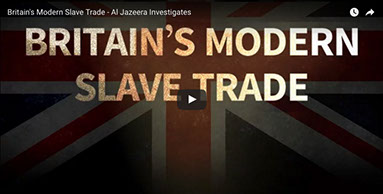
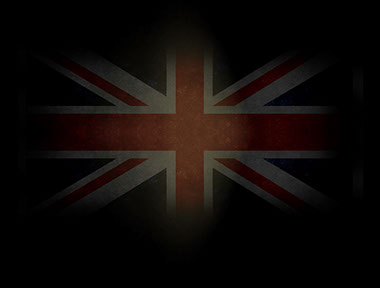
BRITAIN'S MODERN
SLAVE TRADE
Al Jazeera's Investigative Unit goes undercover to reveal the true scale of modern slavery in suburban Britain.
Reporter David Harrison and the investigative team expose the slave masters and the people smugglers and talk to victims about their ordeals.
2
BRITAIN'S DRUGS SLAVES
1
THE MODERN
SLAVERY TRAP
THE MODERN SLAVERY TRAP
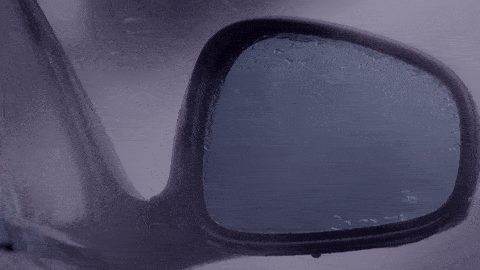
1
Al Jazeera's investigative unit has revealed that large companies in Britain may be failing to tackle slavery along their supply chains.
The findings prompted a warning from Britain's anti-slavery commissioner that companies all over the United Kingdom could unwittingly be using modern-day slaves.
But Kevin Hyland, the UK's independent anti-slavery commissioner, said that new laws mean that ignorance is no longer an excuse.
Secret filming by Al Jazeera uncovered shocking conditions at a carwash in Kent, southeast England, used by dealerships for the auto giants, Volvo and Kia.
Workers living in squalid containers at the carwash in Canterbury say they are paid $50 for 12-hour shifts, suffer verbal and physical abuse, and have wages withheld for causing minor damage.
Parosha Chandran, a leading human rights lawyer, said Al Jazeera's evidence "appears to show all the hallmarks of modern slavery," adding that she has "grave fears that these workers are victims of human trafficking".
"What is absolutely necessary is for Volvo to investigate all parts of its supply chain in terms of labour," she adds. "Who is cleaning its cars?"
A new law introduced this month requires big firms to publicly and prominently report what they are doing to ensure there is no slavery in their operations and supply chains.
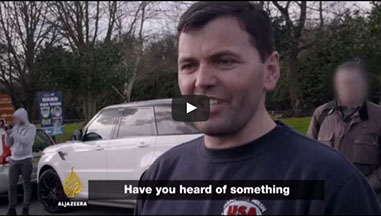
But our research found that 85 percent of the FTSE 100 and other leading companies do not address the Modern Slavery Act prominently, and nearly half make no mention of slavery at all on their websites.
Out of 20 other large companies surveyed, only two acknowledged the Act.
"Last year, there was a significant increase in the amount of people who are in forced labour," Hyland says. "We realise that a large percentage of these are in legitimate supply chains.
"The legitimate and the illegitimate economy become one in some ways because, actually, companies and people don't realise … that they are using … modern-day slaves in their supply chain."
"I'm absolutely sure that no chief executive officer, no director, no ethical British company wants to be paying money to criminals who are keeping people in modern-day slavery. But this [investigation] highlights how businesses in the United Kingdom could be unwittingly funding criminal activity," he says.
But Hyland emphasises that the new laws mean that companies pleading ignorance is no longer an option.
"We've got a Modern Slavery Act; we've got regulations saying we want transparency in supply chains. So people can't say they don't know anymore."
"The reputational damage to companies who fail to see the obvious will be long-lasting," Hyland adds.
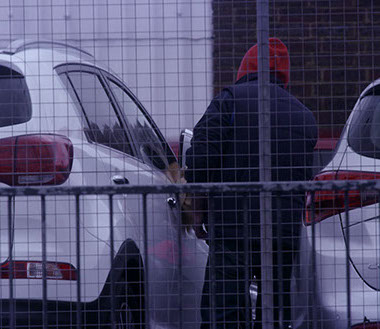
"What is absolutely necessary is for Volvo to investigate [...] who is cleaning its cars?"


From March 31, 2016, all companies with a turnover of more than $51.7m are obliged to publish a slavery statement before the end of their financial year.
The government hopes that companies will do more and create a "race to the top", encouraging transparency and competition to drive up standards.
Sports Direct, which fell out of the FTSE 100 in March 2016 following weak trading and allegations of poor working conditions, is one of the firms that makes no reference to slavery on its home page.
A spokesperson declined to comment, but a source said that the company was likely to publish a slavery statement in its annual report later in the year.
A spokesman for Barclays Bank, which also has no prominent reference to slavery on its homepage, said it would publish a statement before the end of its financial year, which is December 31, 2016.
The company said that it did refer to the Modern Slavery Act - on page 14 of its latest annual report, and would include a slavery statement in its next report in March 2017.

The Al Jazeera investigation centred on the USA Hand Car Wash in Canterbury.
Workers at the carwash were filmed cleaning cars for two Lipscomb Volvo dealerships in Canterbury and Maidstone and at the Kia Harbour Garage dealership in Whitstable.
The Albania-born owner, Avion Elezi, 35, told an undercover reporter posing as a potential client with a fleet of cars in need of washing that his workers worked six-hour shifts. When asked where the workers lived, Elezi said only that they lived "locally".
Elezi, who has British citizenship, offered to cut his already-low prices to win the new business.
But Al Jazeera found workers claiming to work 12 and 13-hour days for less than half the legal minimum wage. They say they often had no breaks and were charged at least a day's pay for squalid accommodation in shabby containers on the site.
Most of the workers are Romanian and speak little or no English. At least one of them claimed that the car wash boss took his travel documents from him, while others spoke of having their pay withheld as a fine for causing minor damages.
Workers who had accidentally damaged cars said their boss had deducted hundreds of pounds from their wages, leaving them earning nothing for weeks on end. Another worker had to pay a huge sum for breaking the wheels of a vacuum cleaner.
We heard that another car washer was taken into the boss's office and punched, while the site manager said that another worker was hit even harder.
Others spoke of verbal abuse and complained of bedbugs and other pests infesting their accommodation.
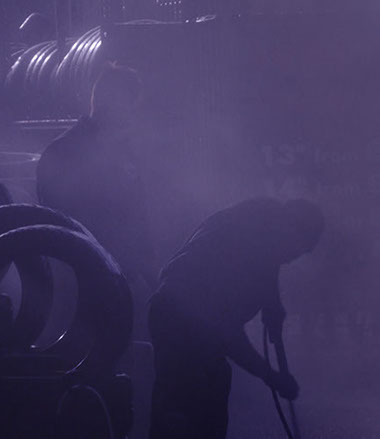
"I have grave fears that these workers are victims of human trafficking."


The reporter returned to the car wash to put the allegations of modern slavery to Elezi, the car wash owner, who was just back from a skiing holiday. He denied all the allegations, adding: "I am not modern slaving anybody."
Elezi, who drives a white Range Rover for which he says he pays $1,000 a month, refused to allow the cameras into the carwash or the workers' accommodation.
He added: "I am just trying to put food on the table and look after my family."
A spokesman for Volvo said its code of conduct stated that its employees and franchises must comply with the law.
The Lipscomb dealership said it complied with Volvo's code of conduct. Earlier, a manager there had told the undercover reporter that "if there had been any problem [with the carwash], we would not have used them".
Kia Motors UK said it expected all its dealers to obey the law and Kia Harbour Garage said it was "shocked and concerned" by our allegations and had launched an investigation.
Hyland, the anti-slavery commissioner, said that carwashes had been identified as places where many workers are exploited.
"With carwashes, we do know the difference between a good carwash and a bad carwash. When you look around the country, there are very many that fall into that category of high-risk."
"As well as carwashes, people working in agriculture, fishing, even manufacturing beds, were kept in modern-day slavery, supplying goods for the High Street."
Thousands of Eastern Europeans work in carwashes across Britain. Many of the workers from come from poor parts of Romania, tempted by advertisements on websites that promise good pay and living conditions.
But too often, the promises do not match the reality, and the workers end up being exploited, many of them in Britain's 20,000 unregistered carwashes.
Chandran, they lawyer, has represented many modern-day slavery victims in court, saying that the alleged exploitation at USA Hand Car Wash in Canterbury was "something that needs to be tackled very strongly by swift and effective law enforcement".
Hyland said his message to the public was to be vigilant: "If you think that there's somebody who is being exploited, if you think there's a risk, then tell somebody; tell the authorities."
Steve Chalke, a special adviser to the UN on human trafficking, urged investors to think hard about where they put their money.
"Check out what risks companies really have in this area, and what they are reporting on," he said.
BRITAIN'S DRUGS SLAVES
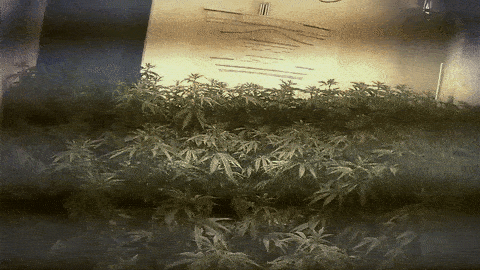
2
In another part of the undercover investigation, Al Jazeera discovered and gained access to an active cannabis farm in a terraced house in suburban East London.
The exclusive footage reveals that the plants – with an estimated street value of over $140,000 - are tended by a suspected modern-day slave.
The young Vietnamese "gardener" says he rarely leaves the house, speaks no English, and lives in fear of raids by the police or by violent thieves.
The gardener is one of thousands of Vietnamese, including children, who work on cannabis farms in the UK. Many are trafficked to the UK to be exploited.
Others pay to be smuggled to the West in the hope of making money there, but they often fall into the hands of traffickers and end up being enslaved.
The gardener tells an undercover reporter how he grows the cannabis plants, referring to the youngest plants as "babies" and the slightly bigger ones as "teenagers".
He explains how electricity - worth around $11,500 a month, he says - is stolen by bypassing the metre.
But he also tells how lonely and depressed he is, and how he hardly ever leaves the ordinary-looking house that has been converted into a cannabis farm.
"There was a time when I suffered depression. I had no contact with the outside world for a long time," he says.
He keeps going because he hopes he will be paid when the drugs are harvested and dreams of going back to Vietnam to get married and build a house for his family.
"Staying in the house all the time is like being in a prison. I have to imagine that I am in prison for a few years. After working for a few years, I will have money and I will do another job."
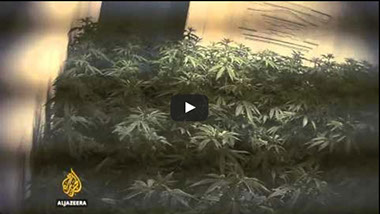
In rare footage, the film shows a Western man delivering food and supplies to the house just before midnight - and reveals the first "harvest" of cannabis being removed from the house.
Drugs gangs used to import cannabis to the UK, but now the drug is mostly grown in houses and warehouses in Britain. Many of the gangs are Vietnamese, who sometimes work with British criminals.
In Al Jazeera's documentary, another young Vietnamese slave describes his horrific ordeal at the hands of traffickers, who forced him to work on cannabis farms and in warehouses.
Tuan's father died when he was five. When his mother fell ill, she had to borrow money from loan sharks to survive. She died when Tuan was 10, and he was taken to an orphanage at a convent in his native Nghe An province in central Vietnam.
The loan sharks came to the orphanage and demanded that the church sign over Tuan's family property to repay the debts. When the church refused, the loan sharks cut off one of Tuan's fingers and sent it to the convent as a warning.
"They put my hands on a board," he says. "They took a knife, held my hand and chopped. They chopped off a part of a finger and wrapped it in a piece of paper. They would kill me if I did not sign the loan paper."
To save Tuan's life, the church signed the papers. But still, the creditors wanted more: They put Tuan to work as a slave in a warehouse. A few years later, aged just 15, he was taken 9,600km by truck to a cannabis farm in the UK.
He says he didn't know which country he was in when he was brought to Britain. When he first worked in a cannabis plant, he thought he was growing vegetables.
He describes how he was beaten, shackled and hung from the ceiling at one warehouse, given just bread, potatoes and water for sustenance and made to sleep on a blanket on the warehouse floor.
"I worked day and night. I had only two or three hours to sleep with a blanket. It was very cold.
"I worked so much. I was cold and hungry and beaten. I was so miserable. It would have been more comfortable to die."
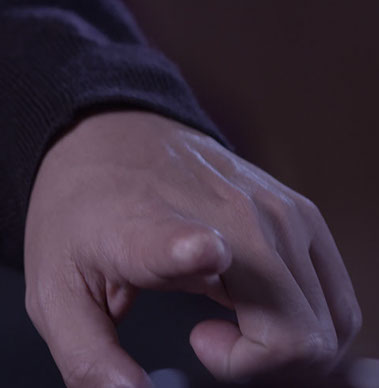
"They took a knife, held my hand and chopped."


The investigation also sheds new light on the people smugglers who bring people into the UK, exposing the cost, the routes and the techniques.
Al Jazeera tracked down and met two people smugglers in Vinh city, the capital of Nghe An province. They boasted to undercover Vietnamese researchers that they could get them into the UK for $32,000, and to mainland Europe for $17,000.
They discuss routes through Russia, Poland, Germany and France and on to England.
One smuggler boasts: "I've been doing this business for 15-20 years, I know all of the best and worst times of the year to go."
She tells them that women can work at nail salons and, eventually, men can work on cannabis farms.
The second trafficker says: "If you decide to go to the UK, I will arrange everything. The type of service depends on the price you pay.
"To go to the UK, you must pass Germany. The toughest route, however, is from Russia to Germany. Travelling from Germany to France or the UK is very easy, just like going shopping."
From France, they would travel to England in a container truck, and the driver would be paid on arrival.
She says she recently smuggled a Vietnamese woman into England in a total of 30 days, which included 10 days for the "paperwork".
The smuggler claims that it will be easy to find work in the UK and dismisses the reporter's concerns about being forced into modern-day slavery.
"Oh, God! If you go, you are going with your husband in a group. You won't be alone," she says.
"We go in groups of five people to Russia pretending to be students. From there, they will easily travel to other countries in Europe."

Many Vietnamese women who make it safely into the UK do end up working at nail salons. Our undercover researcher took a job in one near London.
We found no evidence of slavery at that nail salon, but we did meet a Vietnamese woman who had just been brought into Britain illegally: the salon owner's sister.
He shows the undercover researcher the routes used by the Vietnamese smugglers and says his sister flew directly from Taiwan to Iran without a visa, then to Turkey and Greece.
He says his sister is currently in Paris waiting to be brought over to England. His sister duly arrives a few weeks later and starts working at the nail salon.
She describes how she was smuggled into the UK in the back of a container truck that was carrying coal.
"It was so scary; I was hidden in the driver's cabin," she says. "I was even covered in petrol so the dogs couldn't smell me. Very dangerous."
"For some people, it took 26 hours - not eating or drinking anything."
Asked what they would do if they needed to use the Tuanlet, the woman said: "If you thought you'd need to go, you'd wear a nappy like a child."
BRITAIN'S SEX SLAVES
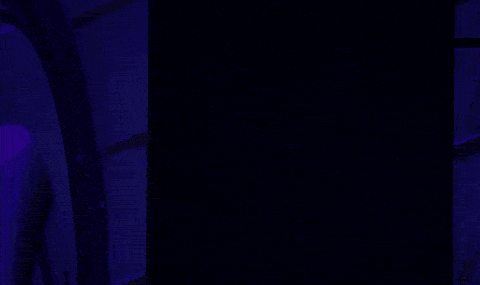
3
In another strand of the investigation, Al Jazeera exposes how thousands of young women are forced into sexual slavery in Britain.
A Romanian pimp reveals to an undercover researcher the techniques he uses to control and exploit young women brought over to London from Romania.
The pimp, who is in his 20s, explains calmly that he does not need to use physical violence because he has ways of controlling the women's minds.
"Now, there are new ways of keeping a girl under control," he says.
"You have to know a lot about the woman from back home. You need to know the one thing that is precious to her.
"You just tell her: ‘If you don't do this, you are f****d.
"Why should I slap them when I can just use words to destroy them mentally?"
Phil Brewer, head of anti-trafficking at the Metropolitan Police, says such threats are used by many exploiters who keep women in modern-day slavery.
"In addition to threats of violence, we also see indirect threats … ‘If you don't do as … I tell you to, then your family at home will be targeted,'" he says.
Robert says he controls four Romanian women in Ilford, East London. Sitting in a car that he says he was given by a client in exchange for a whole night with one of the young women, Robert says they work all night, every night.
"I have four women, and I send them all on the street, and I stay at home," he says. "I have someone I pay to keep an eye on them."
Three of the women have worked for the last year-and-a-half without a single day off, he says. He says he makes them work "nonstop, every day".
"This has to become work for them - a routine. They need to wake up and say: ‘I have to go to work.'"
The pimp talks about how sleepless nights affect the women's appearance. "Do you know what it means not to sleep at night for a month?
"The face changes, they get dark circles around their eyes. The tiredness makes them look terrible."

Some sex slaves eventually manage to escape from their horrendous ordeals. Anna, who was rescued from her traffickers by police in the north of England, told how she was forced into prostitution at the age of 16.
She comes from a poor family in western Romania and was excited when she met a young man who became her boyfriend and told her he would take her to Italy for a holiday.
It was the teenager's first trip abroad. When they arrived in Italy, her boyfriend told her that she had to sell sex and give him the money.
She tried to refuse, saying how "he became angry and hit me." Anna was locked in a room and forced to be a prostitute, providing whatever services the clients wanted, no matter how depraved.
"Some clients paid to beat me,' she says.
Anna was a victim of the "lover-boy pimp trap", a technique used by many exploiters: seduce, beat, rape and control with threats and violence.
For Anna, her "holiday" in Italy was the beginning of 11 years of sex slavery. She was trafficked to Austria, Spain and finally to Britain where she was locked in dingy apartments and cheap hotels, working every day for no money.
She was controlled by two men and a woman she calls "the bad lady". "I wasn't paid any money because the bad lady used to keep all the cash," she says.
"They thought I was their slave, making money for them, making them happy."
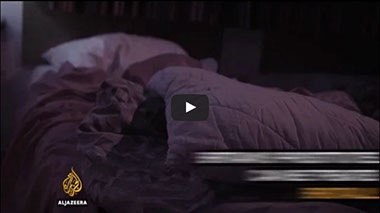
But there was no happiness for Anna. She was forced to drink and take drugs with clients before submitting to their sexual demands.
Police rescued Anna from a hotel in West London. In March 2014, she returned to Romania, but her controllers tracked her down and bundled her into a car where they assaulted her and told her they were taking her back to England.
Her ordeal started all over again, this time at a hotel in the northern English city of Leeds.
"They brought in 30 guys for me to sleep with," she says. "They tied me to the bed then the guys did their job. My ‘madame' was very happy.
"She was telling me this is how I like it. I was telling her that no, I didn't like it. I wanted to break down the door and escape from there.
"I was very scared. They turned off the light and told me to do what the clients wanted because, if I didn't, I don't deserve to eat."
"They gave me cold water; they tortured me. They beat me up with a belt and said I was their slave.
"I was lying there thinking there was no point being controlled by them anymore. It was better to take my own life."
Anna was rescued for a second time by police in October 2014 and was taken to a safe house run by the City Hearts charity.
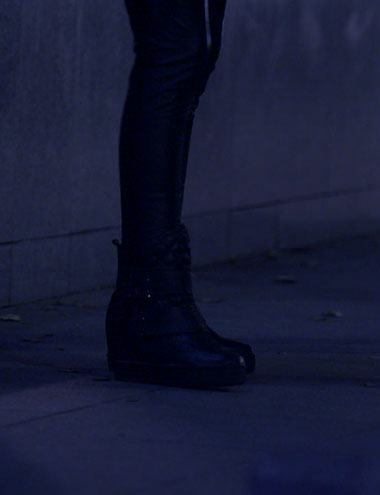

"I have four women, and I send them all on the street, and I stay at home."

In May 2015, her Romanian captors were tried and convicted. Elizabetta Patkanyi, 27, from Oradea, western Romania, was jailed for a total of six years for controlling prostitution and assault. Her two male accomplices received 18-month sentences for assault.
Today, Anna is trying to rebuild her life and would like to become a hairdresser.
But she is still deeply scarred by her ordeal, and the charity caring for her says she faces a long road back to anything resembling normality.
As modern-day slavery is a hidden crime, it is impossible to know exactly how many sex slaves there are in the UK.
The government estimates that there is a total of 13,000 victims of all forms of slavery, but campaigners say the real figure is much higher.
Last year, 863 adults were identified as potential sex slaves – a 30 percent increase from 2014, according to the National Crime Agency.
The number of potential child sex slaves identified was 217, 105 of whom are UK citizens, a 64 percent increase from 2014.
The Salvation Army won the government contract to run safe houses for victims of modern-day slavery in 2011. Anne Read, the anti-trafficking director, said 380 victims came into the service in the first year.
But in the past six months alone, they have taken in over 1,000 victims, bringing the total number of those who are referred to the Salvation Army for support to over 4,000.
"There's no doubt that the scale of modern slavery is enormous," she said.
"We are just seeing the tip of the iceberg."
SMUGGLING & SLAVERY
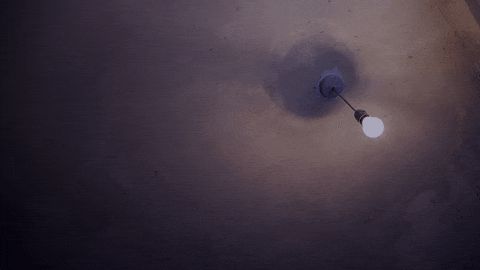
4
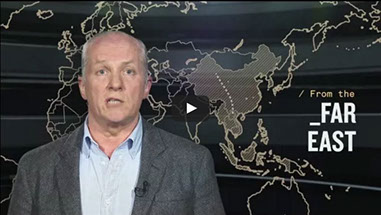

5
After the documentary was broadcast, the Metropolitan Police decided that the Vietnamese man found in the cannabis house was a victim of human trafficking. He will be cared for by a charity until a decision is made to allow him to remain in Britain or to send him back to Vietnam.
The National Crime Agency said that it would liaise with its Vietnamese counterparts to try to break the people-smuggling rings identified by Al Jazeera's investigation.
Kent police officers launched an investigation into two USA Hand Car Wash sites, in Canterbury and nearby Chartham.
Volvo ordered its dealerships across the UK to check suppliers and contractors to ensure they were not using workers who were being exploited as modern-day slaves. The car giant said it was "shocked and appalled" by the conditions shown in the documentary.
A spokesman told Al Jazeera's investigative unit: "Volvo Cars UK commits all its business partners to a strong code of conduct. However, this documentary has shown that unintentional breaches may still be occurring."
Volvo had told the Lipscomb Cars dealership that "unless they promptly receive satisfactory evidence that the allegations are false (which, having watched the documentary, seems unlikely) they must cease using the car wash in question immediately".
The car firm said it would "share the information uncovered by the documentary with our dealer network, remind them of their contractual obligations in relation to forced labour and ask them to undertake thorough checks of all their suppliers and subcontractors".
Harbour Garage in Whitstable said it had cancelled its arrangement with USA Hand Car Wash "immediately" after the documentary was broadcast.
Peter Hinkins, managing director of the Northgate Group, which owns the Kia dealership, said: "The evidence in the programme left us with enough doubt to take the decision to end our relationship with USA Hand Car Wash immediately."
Kia Motors (UK) said it expected its partners "to protect the rights of their employees …They should have no dealings with any company where direct evidence shows mistreatment or improper behaviour or where allegations of such conditions exist and leave considerable room for doubt or suspicion."
Lipscomb Cars, the Volvo dealership with showrooms in Canterbury and Maidstone, said it was "perturbed" by the accusations in the documentary and had launched an investigation. It had decided to review its agreement with the car wash company and other suppliers, seek written assurances from the car wash owner and consider whether to bring car-cleaning in-house.
Peter Barnes, managing director, said Elezi had "assured" him that he was not exploiting his workers but he was seeking a further meeting with the car wash owner "to discuss the findings and evidence of the documentary".
Reporter
David Harrison
Producer & Director
Jason Gwynne
Director of Photography
Chris Olivotos
Additional Camera
Emmanuel Panaretos
Video editors
Adrian Billing & Chris Olivotos
Executive Producer
Will Jordan
Executive Producer
Phil Rees
Researcher
Radu Ciorniciuc &
Anonymous Vietnamese researchers
Interactive designer (English)
Yarno Ritzen
Interactive designer (Arabic)
Mustafa Abuein

